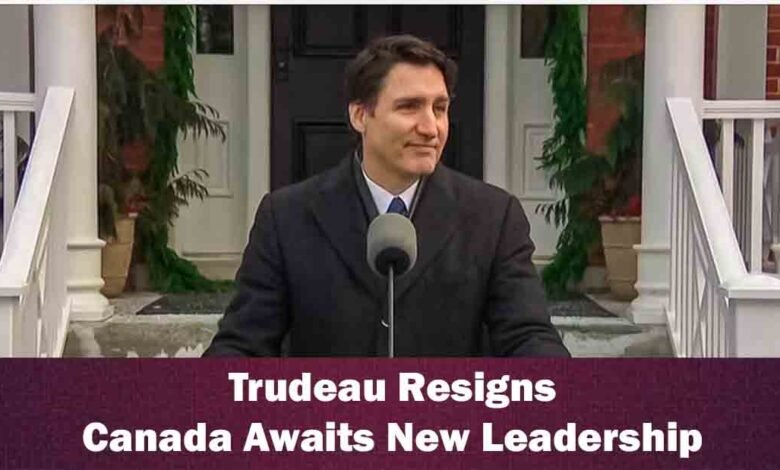
Canadian Prime Minister Justin Trudeau Announces Resignation
In a historic political development, Canadian Prime Minister Justin Trudeau announced his resignation as the leader of the ruling Liberal Party and the nation’s head of government. Trudeau, 53, who has been at the helm since 2015, will continue in office until the party selects a new leader. The announcement came during a press conference on Monday, where Trudeau addressed growing concerns over his leadership.
Party Pressure and Declining Popularity
Trudeau’s decision follows significant internal party pressure amid declining public approval ratings. Over the past two years, issues such as rising inflation and an acute housing shortage have eroded his popularity. Party insiders and political analysts have warned that contesting the next general election under Trudeau’s leadership could lead to a severe electoral defeat for the Liberal Party.
During his address, Trudeau acknowledged the challenges he faced, stating, “I don’t easily back down from a fight, especially one critical for our party and the country. But I serve with the conviction that the interests of Canadians and the health of democracy come first.”
Timeline for New Leadership
Trudeau confirmed that Parliament will remain adjourned until March 24, giving the Liberal Party time to organize a national leadership convention. The elected leader will automatically assume the role of Prime Minister. Trudeau remains Canada’s longest-serving prime minister in modern history, making his resignation a pivotal moment in the country’s political landscape.
Opposition and Future Challenges
The resignation sets the stage for intensified political maneuvering. All three major opposition parties have pledged to table a no-confidence motion once Parliament resumes, almost guaranteeing a spring election to establish a permanent government.
Internationally, the timing is delicate. Canada’s relationship with the United States faces new strain, as US President-elect Donald Trump has threatened to impose hefty tariffs on Canadian exports unless stricter border measures are enforced to curb alleged cross-border migration and drug trafficking. Trudeau’s successor will have to navigate these challenges while stabilizing domestic policy.
Justin Trudeau’s departure marks the end of a transformative and contentious era in Canadian politics. As the Liberal Party prepares for its leadership race, Canada watches closely, anticipating the next chapter in its political journey.




